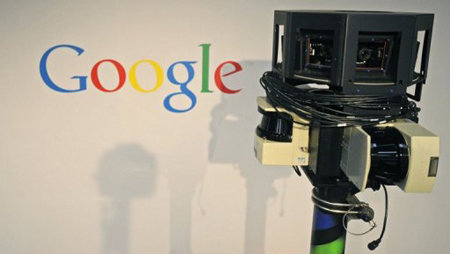AFP
May 11, 2011
Apple, Google defend privacy practices in Congress
AFP
May 11, 2011
May 11 - Apple and Google, facing questioning from skeptical US lawmakers, defended their privacy practices before a congressional committee.
"I believe that consumers have a fundamental right to know what data is being collected about them," Senator Al Franken said at a hearing of the newly created Senate Judiciary Subcommittee on Privacy, Technology and the Law.
 Apple and Google, facing questioning from US lawmakers, defended their privacy practices |
"I also believe they have a right to decide whether they want to share that information and with whom they want to share it and when," the Democrat from Minnesota told the hearing on mobile privacy.
Senator Patrick Leahy said he was "deeply concerned" about reports that Apple iPhones, Google Android phones and mobile applications were "collecting, storing, and tracking user location data without the user's consent."
"I am also concerned about reports that this sensitive location information may be maintained in an unencrypted format, making the information vulnerable to cyber thieves and other criminals," the Democrat from Vermont said.
At the same time, the senators took pains to stress that they appreciated the benefits of technology and did not want to stifle innovation.
"No one up here wants to stop Apple or Google from producing your products or doing the incredible things you do," Franken said. "I love that I can use Google maps -- and for free no less.
 Senator Al Franken |
"And the same goes for the app on my iPad that tells me the weather. But I think there's a balance we need to strike."
"The digital age can do some wonderful, wonderful things for all of us," Leahy added. "But at the same time American consumers and businesses face threats to privacy like no time before."
Addressing the committee, Bud Tribble, Apple's vice president for software technology, said the California gadget-maker is "deeply committed to protecting the privacy of our customers."
"Apple does not track users' locations, Apple has never done so and has no plans to ever do so," Tribble said.
He said popular location-based services on mobile devices such as the iPhone and iPad do require some data collection, however, and users are able to opt out if they wish with easy-to-use tools.
 Google street-view camera |
"These services offer many benefits to our customers by enhancing convenience and safety for shopping, travel and other activities," the Apple executive said.
He said location data is "collected anonymously in a form that does not personally identify you" and Apple "does not share personally identifiable information with third parties for their marketing purposes without consent."
Alan Davidson, Google's director of public policy, said the Internet search giant is "committed to the highest standards of privacy protection in location-based services."
"While location-based services are already showing great value to users, Google recognizes the particular privacy concerns that come with the collection and storage of location information.
"Location-sharing on Android devices is strictly opt-in for our users, with clear notice and control," he said.
"That's why we don't collect any location information -- any at all -- through our location services on Android devices unless the user specifically chooses to share this information with Google," Davidson said.
"And even after opting in, we give users a way to easily turn off location sharing with Google at any time they wish."
By Chris Lefkow
Copyright © 2024 AFP. All rights reserved. All information displayed in this section (dispatches, photographs, logos) are protected by intellectual property rights owned by Agence France-Presse. As a consequence you may not copy, reproduce, modify, transmit, publish, display or in any way commercially exploit any of the contents of this section without the prior written consent of Agence France-Presses.

























